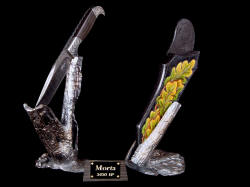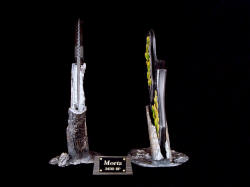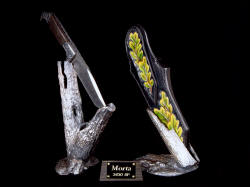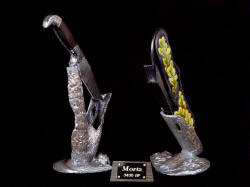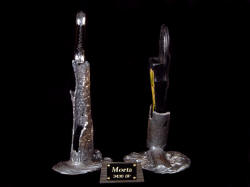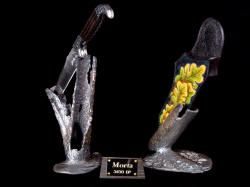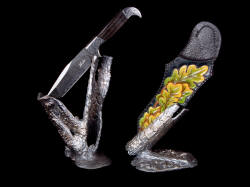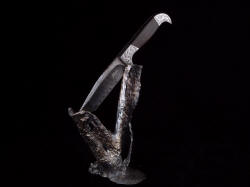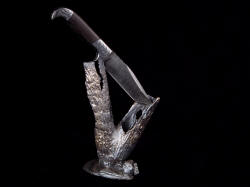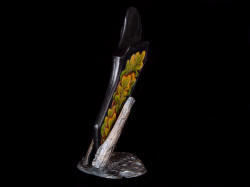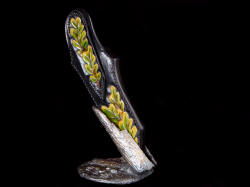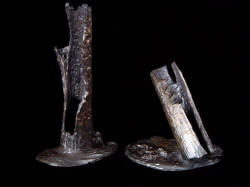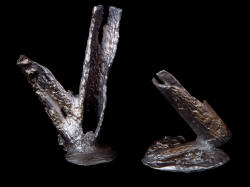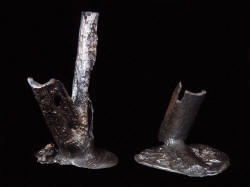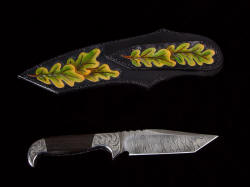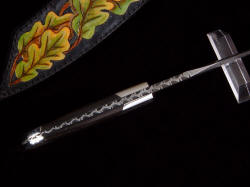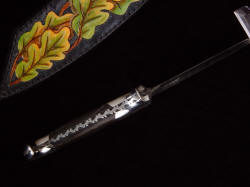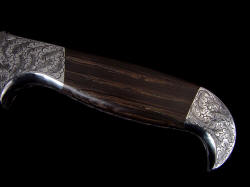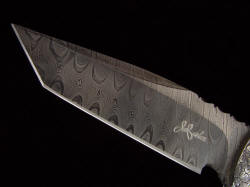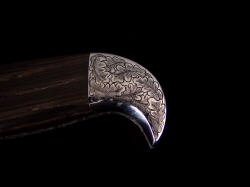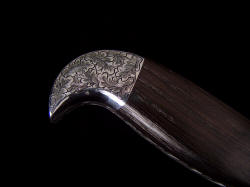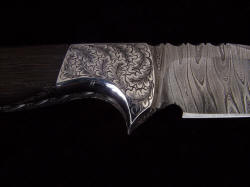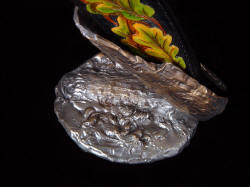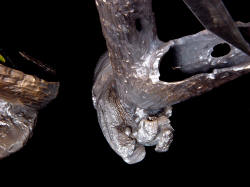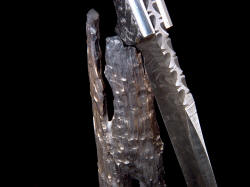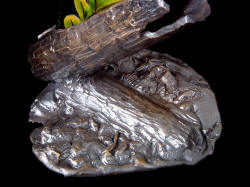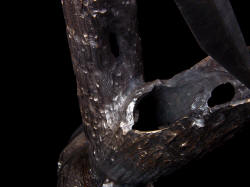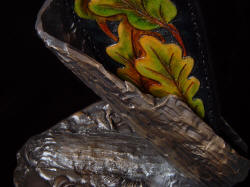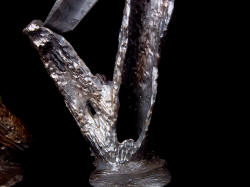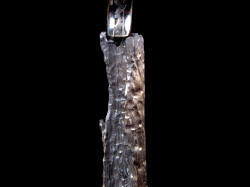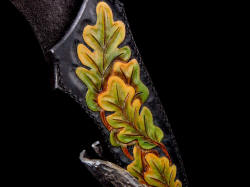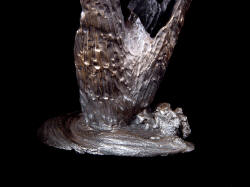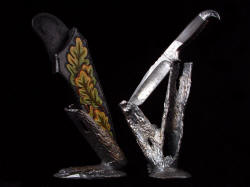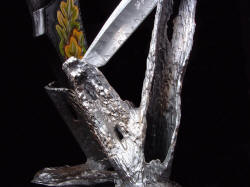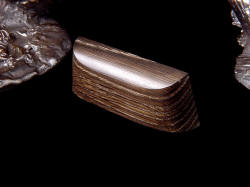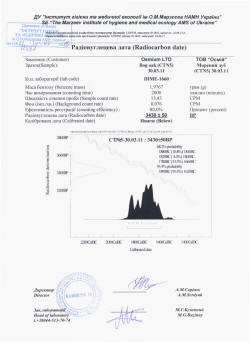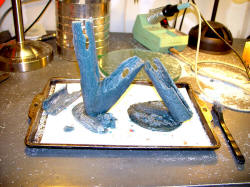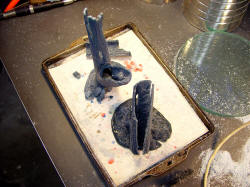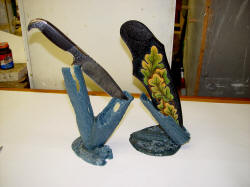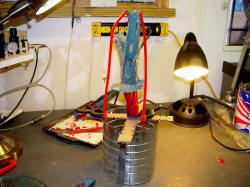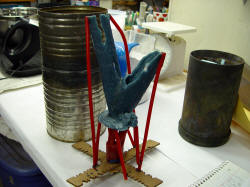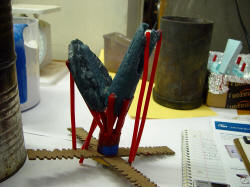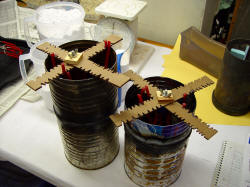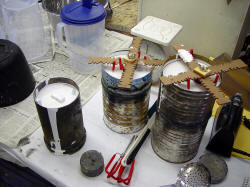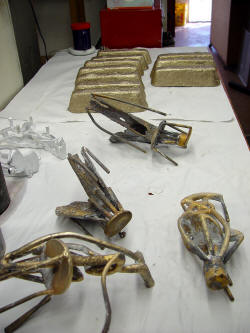Jay Fisher - Fine Custom Knives
New to the website? Start Here

"Izanami" with Nickel Magnesite gemstone handle
Jay Fisher - Fine Custom Knives |
|||
New to the website? Start Here |
 "Izanami" with Nickel Magnesite gemstone handle |
||
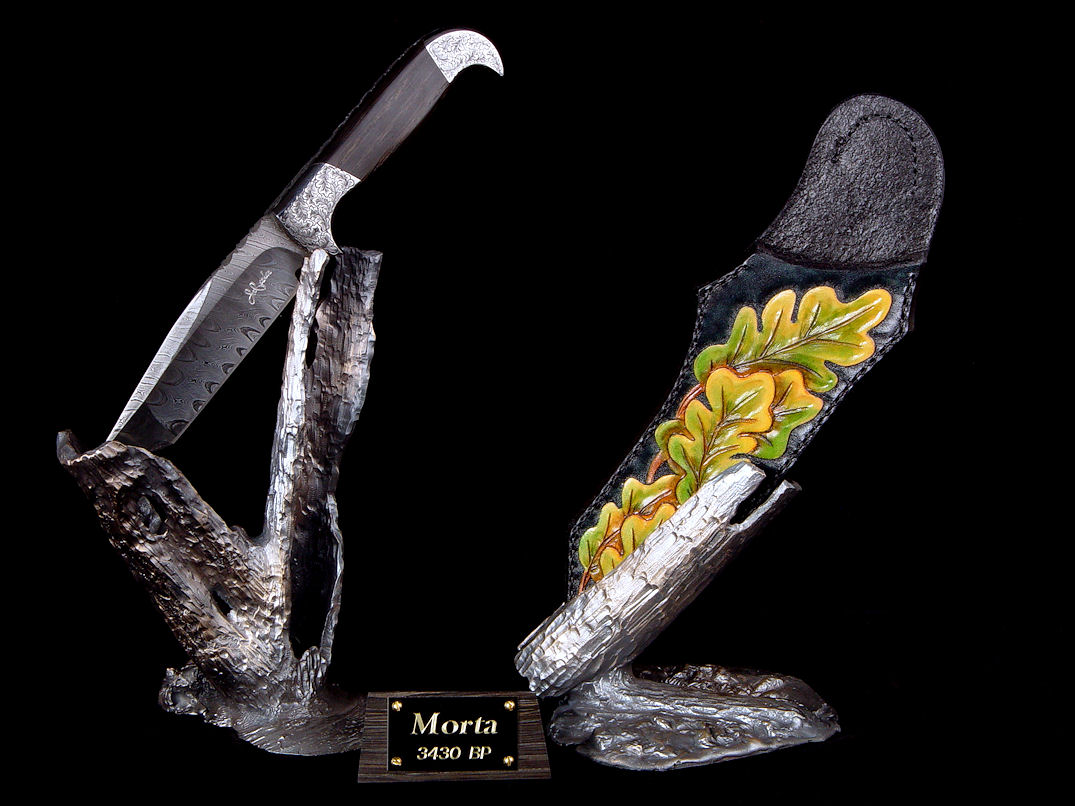
In the ancient past, geometry was just being developed in Egypt when Thutmose III ascended to the Egyptian throne and began the first use of the term Pharaoh. About that time the Mycenaean Greeks conquered the Minoan Civilization on Crete and the first metalworking began in South America. The war chariot was introduced to China, and Amenhotep IV introduced monotheism to Egypt. This time was before Tutankhaman (King Tut) reestablished polytheism as official religion in Egypt, before Judaism was established in Palestine, and before the Olmecs, before the Phoenician maritime dominance in the Mediterranean, and even before the use of chairs, which were first used only by Egyptian royalty. This was before the invention of steel, before the iron age began.
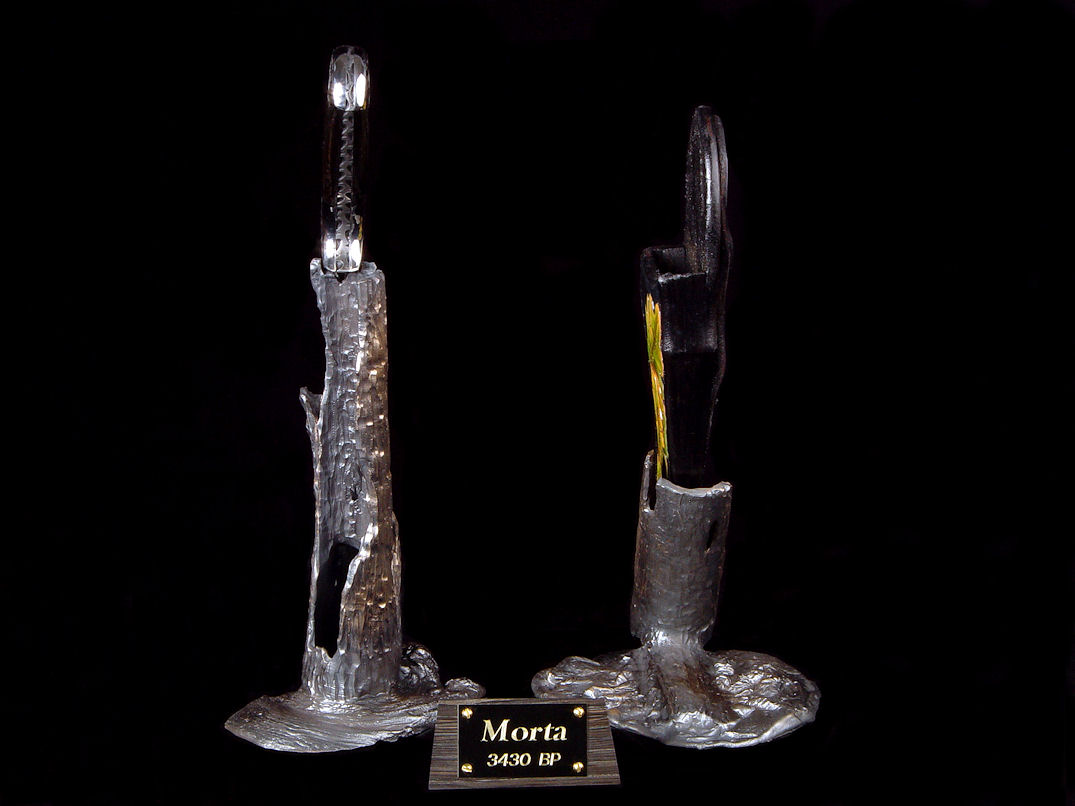
This is when a large, heavy oak tree fell into a marshy swamp, a bog, in what is now the Ukraine. Perhaps it died of age, or in a flood, or an earthquake, or even a fire; we'll never know. What we do know is the tree fell 3430 years ago, and was soon covered by other organic matter that did not allow the wood the time to rot away. I'm sure no one knew or cared about this tree, buried in the acidic and anaerobic bog, shielded from air, oxygen, and even time itself, as it slowly percolated in minerals and moisture. The world went on around it, through wars, and peace, and technology, and growth that would comprise all modern history. Then, in 2005, the remains of the log was pulled from the bog that had been its resting place for over 3400 years, outlasting nearly all of mankind's record. This is a very ancient Morta.
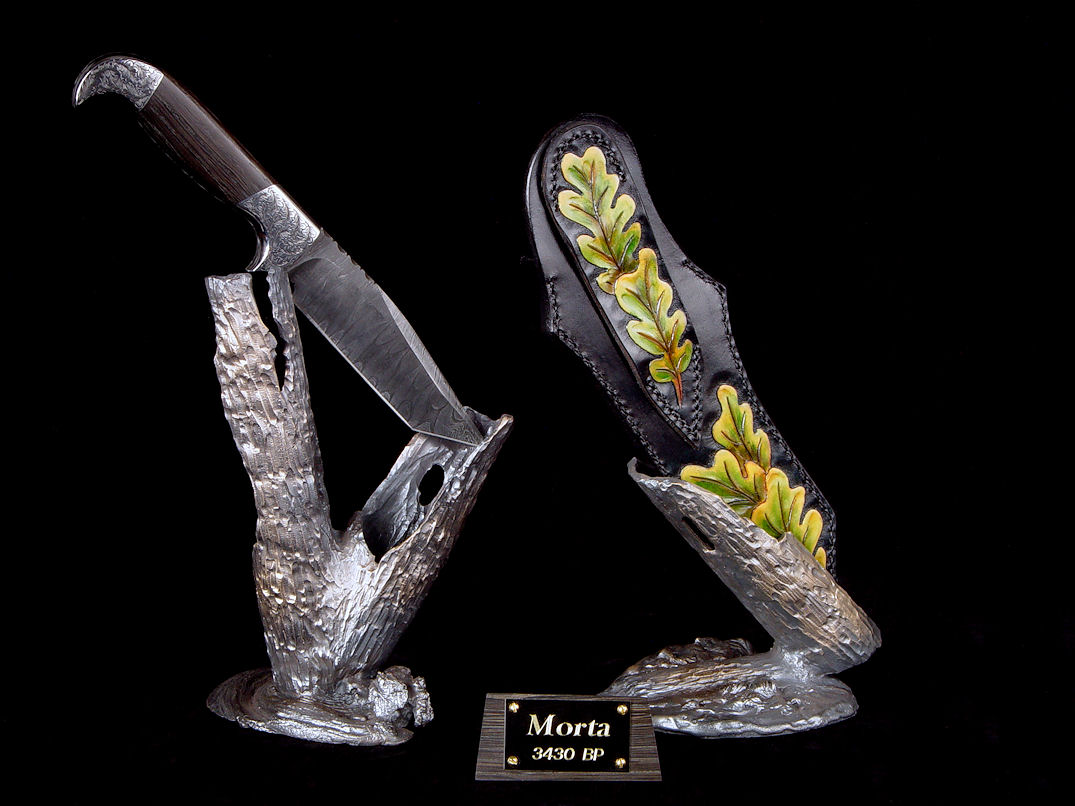
The word Morta has uncertain origins, but is generally believed to be the Roman Fate who cuts the thread of life, the equivalent of the Greek Atropos. Though the use of this word as a noun is rare, it is typically used to describe bog oak in several cultures.
Morta is another name for bog oak, the central theme of this fine knife sculpture. I was lucky to acquire the bog oak from the source in the Ukraine, along with the accompanying documentation and carbon dating necessary to its provenance and pedigree. I literally built the knife based on the bog oak, and the entire theme of the piece centers around this very special ancient organic material.
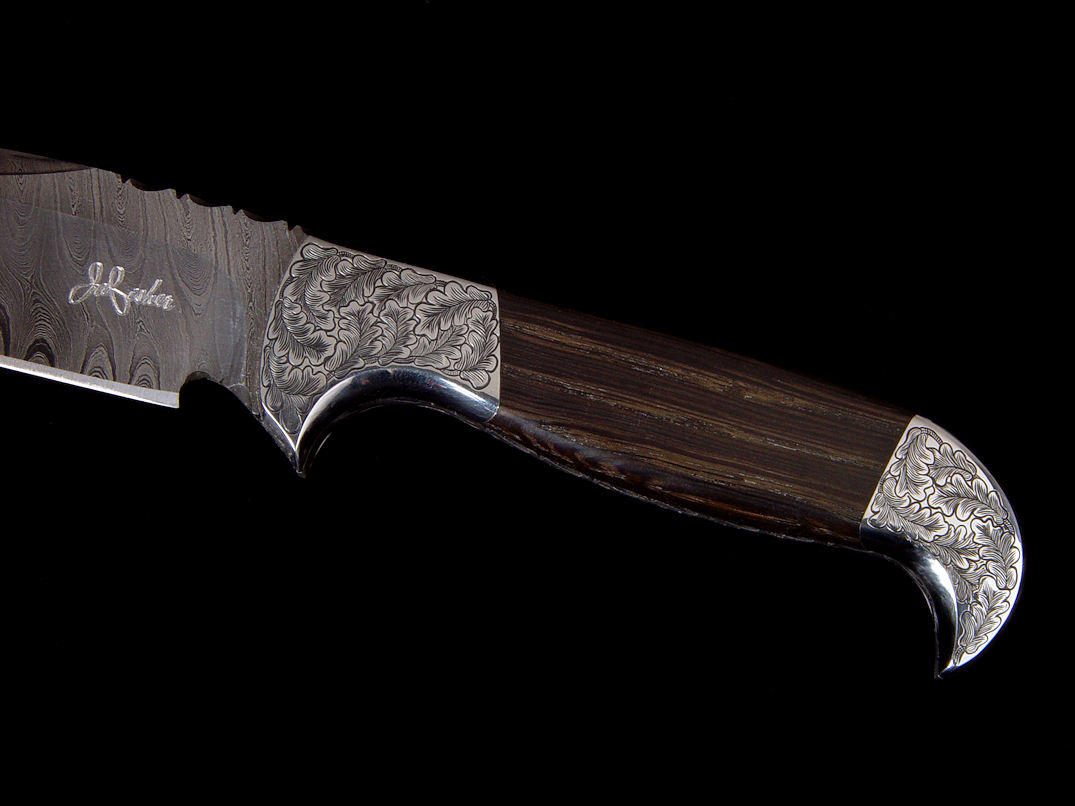
Bog oak is very hard, tough, strong, and stable. It has literally thousands of years of penetration of minerals in its pores, filling them, permeating them, hardening and stabilizing them. This also darkens the wood, with a stain of ages that exists in no other material on the planet. Bog oak won't shrink or rot, or stain, or absorb water, it is the ultimate wood material. While we have developed modern methods to stabilize woods and other organics, we inject plastic to do this, while nature takes its time, an immense amount of time, indeed.
Bog oak has been prized throughout history, and particularly in western Europe and the British Isles. However, bog oak from this region has played out, is protected, or is tightly controlled or severely limited for export. Bog oak was prized for knife handles by the Scotts, the Irish, and the English, French, and others, and even has even been treasured for magical powers.
In Morta, I bring this very ancient, respected, and valued historical material to a modern art form.
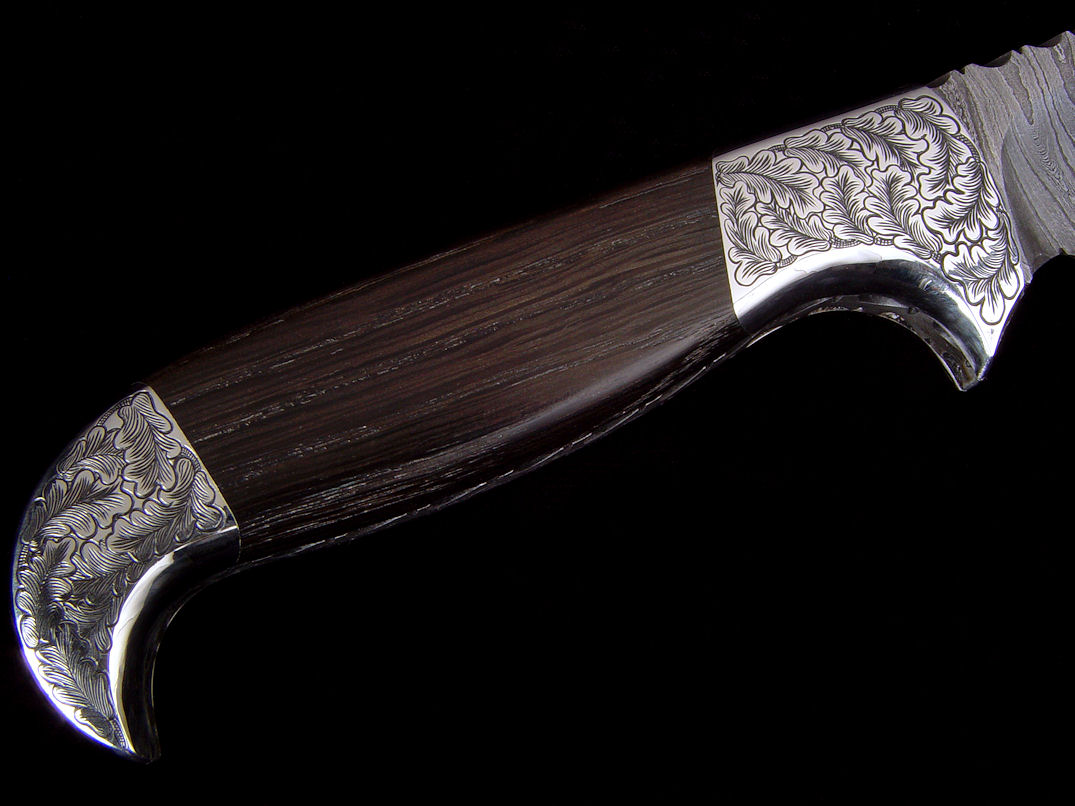
I started with a dark twist arrangement of pattern welded damascus steel, using O1 high carbon oil hardening tool steel and A36 structural steel, layered together and twisted, forged, hardened and tempered, and selectively blued to bring out the pattern. The knife shape is a tanto point with a top swage, deeply and accurately hollow ground with crisp, matching grinds that yield an extremely sharp cutting edge. The blade is fully fileworked with a bold and deep pattern completely around the tapered tang.
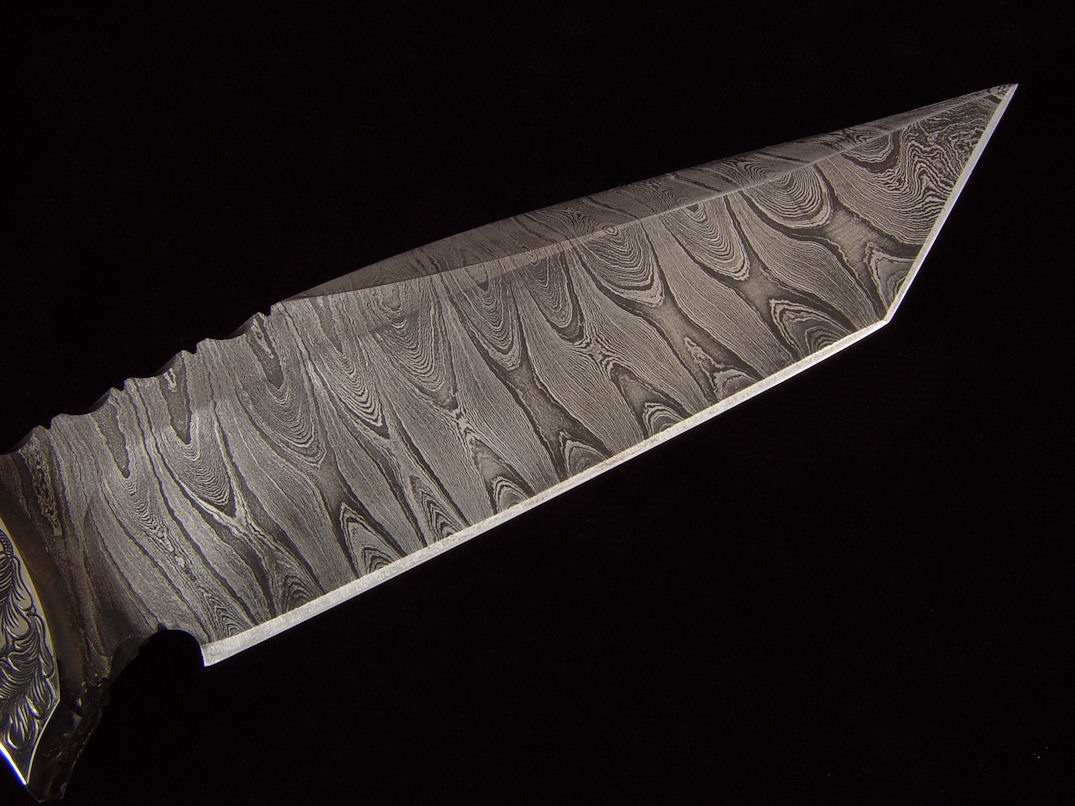
The knife is bolstered with zero-care high chromium, high nickel 304 austenitic stainless steel, the same steel used to make tough and hard stainless steel nuts, bolts, and fasteners. The bolsters are dovetailed to bed the bog oak handle scales, and they are fully engraved with a packed oak leaf pattern. It is rare that any knifemaker hand-engraves this stainless steel; it is brutally difficult and time consuming, but will outlast all other bolster material. The bolsters are contoured, rounded, formed and polished for comfort.
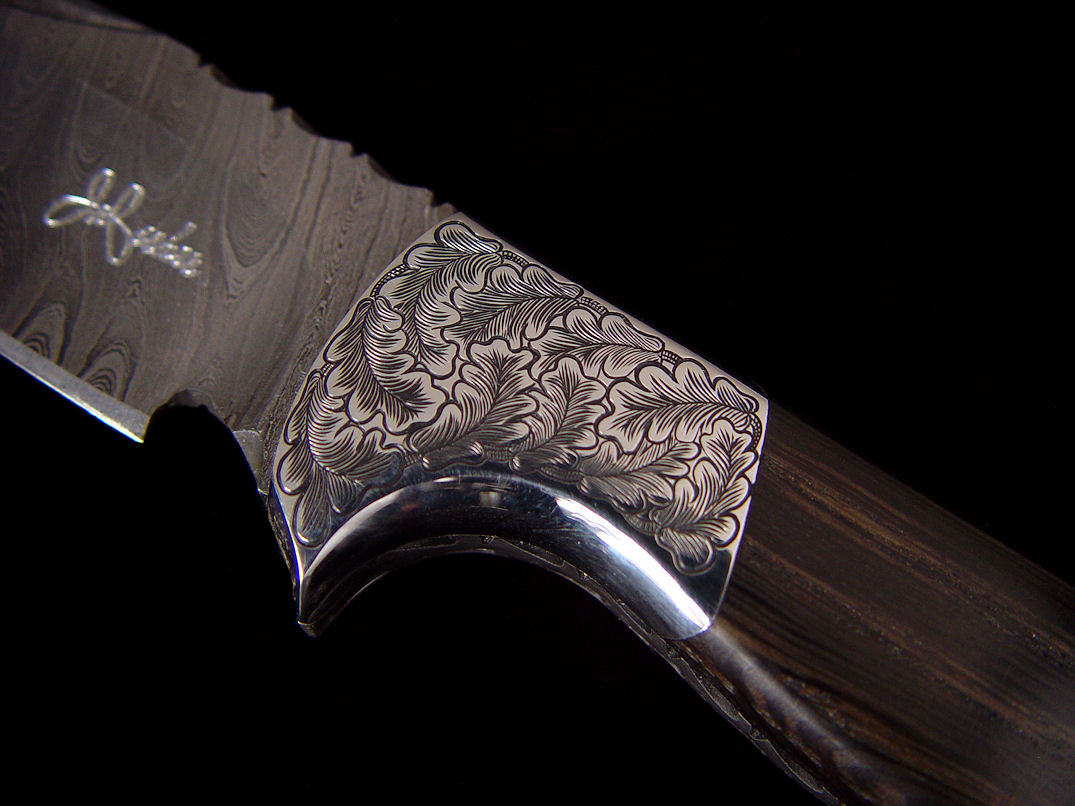
The handle scales are bog oak, radiocarbon dated (see provenance below and included in package) to 3430 years BP (Before Present) with a variable of plus or minus 50 years, which is as accurate as reasonable for this testing and material. While there are other woods that are loosely called bog oak, merely because they are buried and mineralized, this is truly oak, with the unmistakable grain and structure of this Quercus species. Due to the immense aging and mineralization, the Morta handle is thoroughly a dark brown color with hints of black and a tiny bit of silver sheen when turned in bright sunlight. Of course, the color is through and through, and the mineralized wood is incredibly stable and solid. I finely finished the wood to a bright polish, and an occasional coat of light wax as on the blade keeps it pristine. It's dramatic to think that this piece of wood is older than the entire human history of steel, predating the iron age! The wood feels warm and solid in the hand. When I grasp the knife, I'm clearly aware that this organic substance has already lasted over 100 generations and three millennia. I'm humbled to know it will probably last many more generations, with little concern.
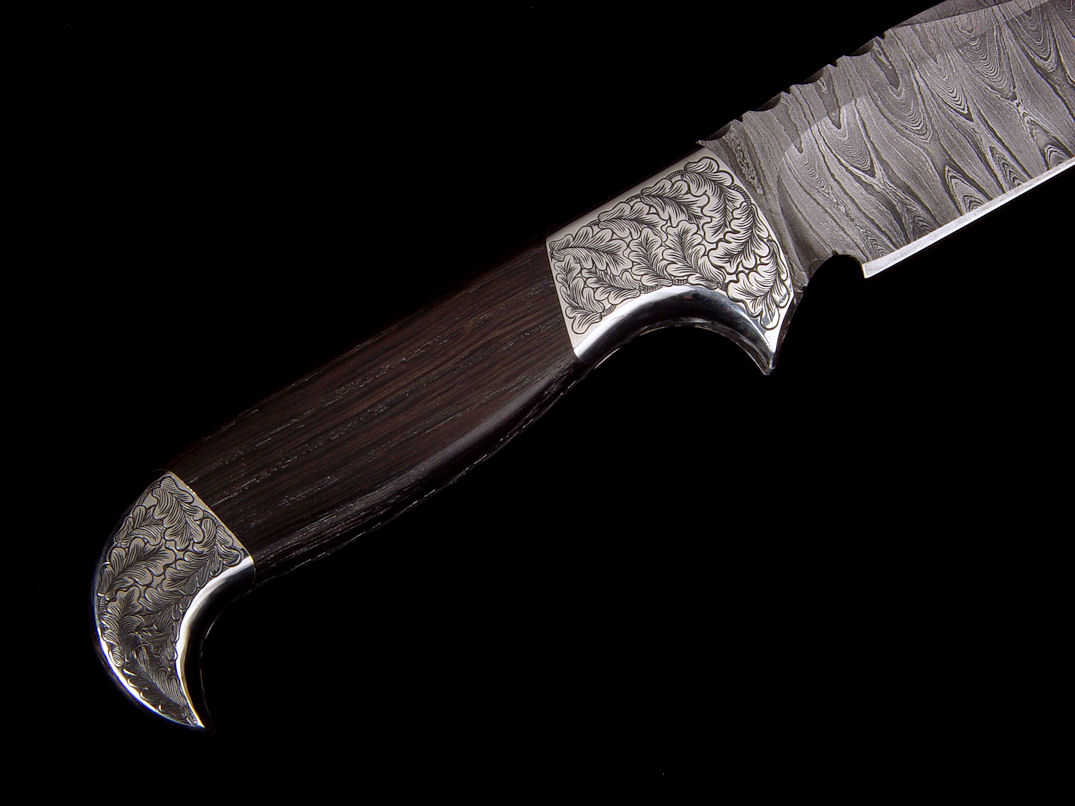
The knife feels inviting and solid in the hand, the quillons keep the fingers comfortably wrapped to the handle, and the cool stainless steel is balanced by the warmth of the old oak. The knife has perfect forefinger balance; comfortable in either forward or reverse grip.
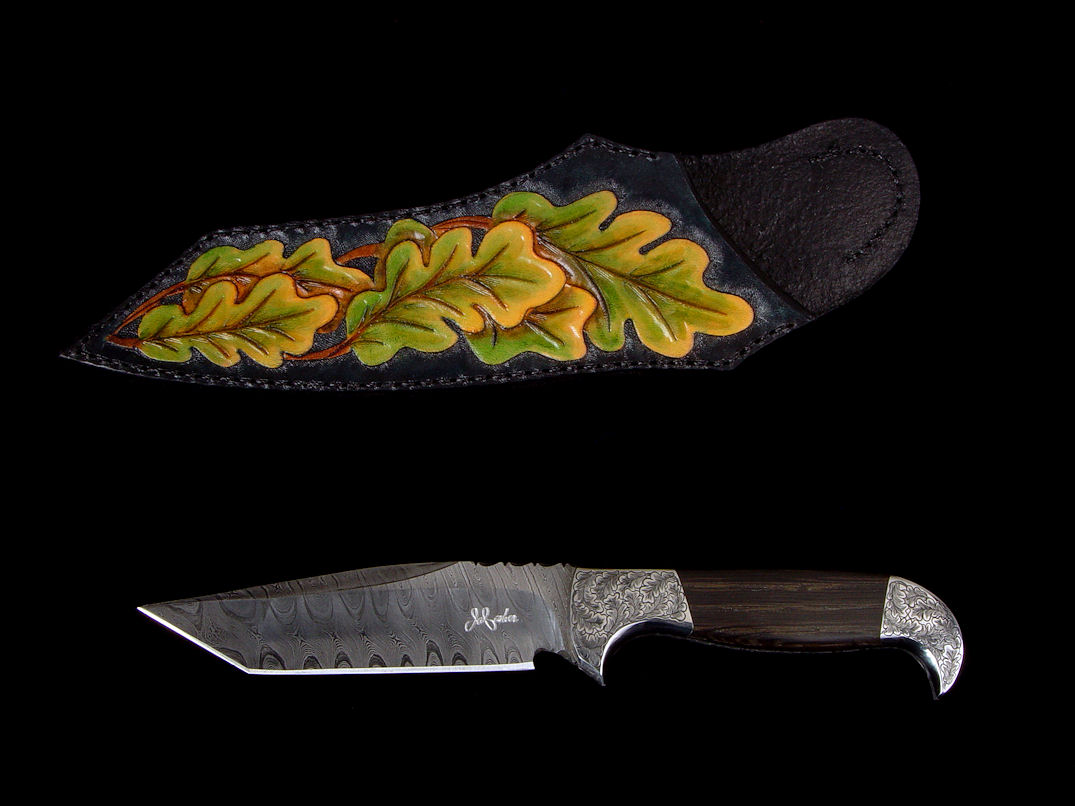
The sheath was the next creation that I needed to honor the ancient oak. I hand-carved and meticulously hand-dyed 9 - 10 ounce thick leather shoulder, in the pattern of oak leaves and stems, just beginning to turn. For me, this symbolizes the eternal cycle of years that all life on the planet endures. The sheath is hand-stitched with black nylon and polished, finished, and sealed. It's a deep, protective sheath that displays a view of the handle and the rear bolster, with a high rise back protecting the wearer. It's smooth, solid, and functional, but beyond that, it honors the knife, which is how it should be.
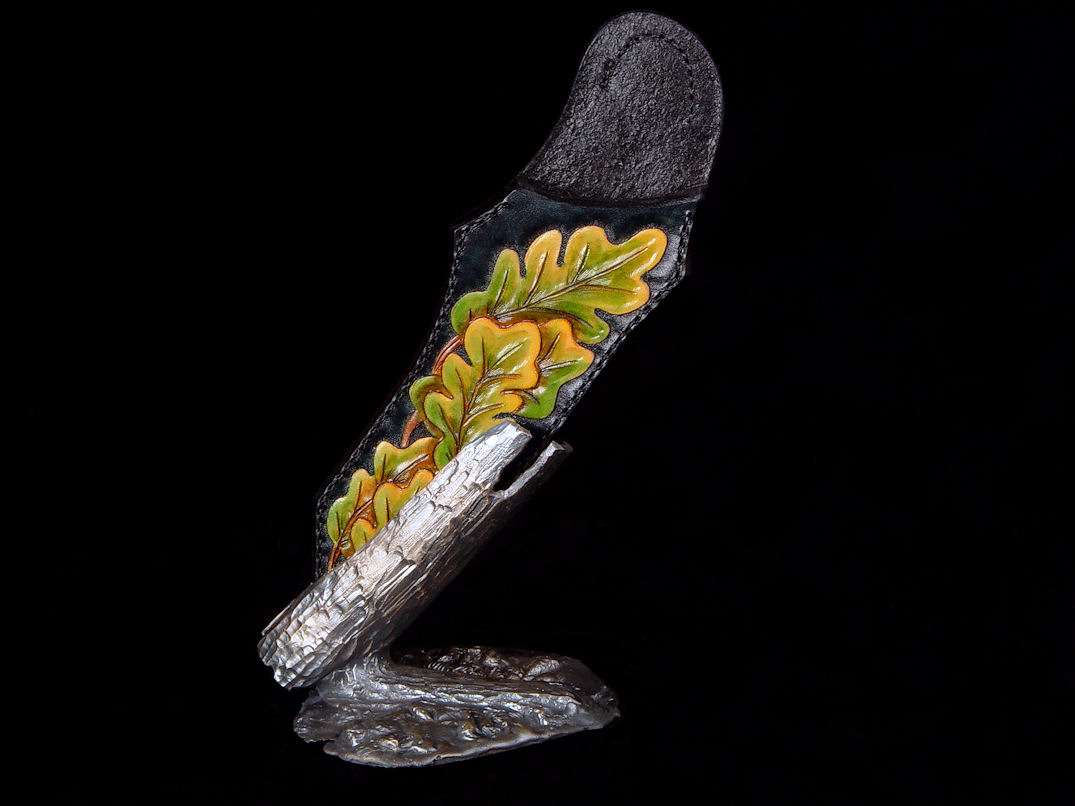
Perhaps the most striking components of this work of art are the stands. In my commitment to complete works, I realized that the stand must not just be a display, but must reflect the origin and emotion of this ancient, once-living organic remains. I went all-out. I designed and hand-carved renditions of old, hollowed, decaying trunks of oaks in carving wax. The trunks were designed to hold the knife and sheath at specific display angles, to compliment the knife and sheath without overshadowing them. The trunks were set in carved and formed "bogs" of patterned and melted wax, and the entire wax models took many hours to complete. Since this was a singular work, without mold or other model, I knew that one error in the process would cause me to lose the wax models and thus the result. I attached sprues and vents, carefully placed and calculated runners and gates, and set the wax model in casting investment. This is a specialized plaster that reproduces exactly the model, its surface, form, volume, and shape. I had to construct several welded coffee cans for these large casting flasks, and mix up a sizeable amount of investment. I had to make special holders for the wax frames, and accommodate these oversized flasks in the burnout oven. The invested waxes were burned out during a 38 hour process (see video) and over three pounds of 1950°F molten bronze were poured into the 900°F flasks. The castings were cooled, the molds broken out and dissolved in shake-out, the bronzes fettled (cleaned, de-sprued, and formed by carving and sanding), and then patinaed. For the patina, I chose a lustrous silver color, with hints of bronze peeking through to compliment the color of the knife blade, engraving, and bog oak.
The stands alone are works of sculptural art. Be sure to watch the video of the casting and shakeout of these fine castings.
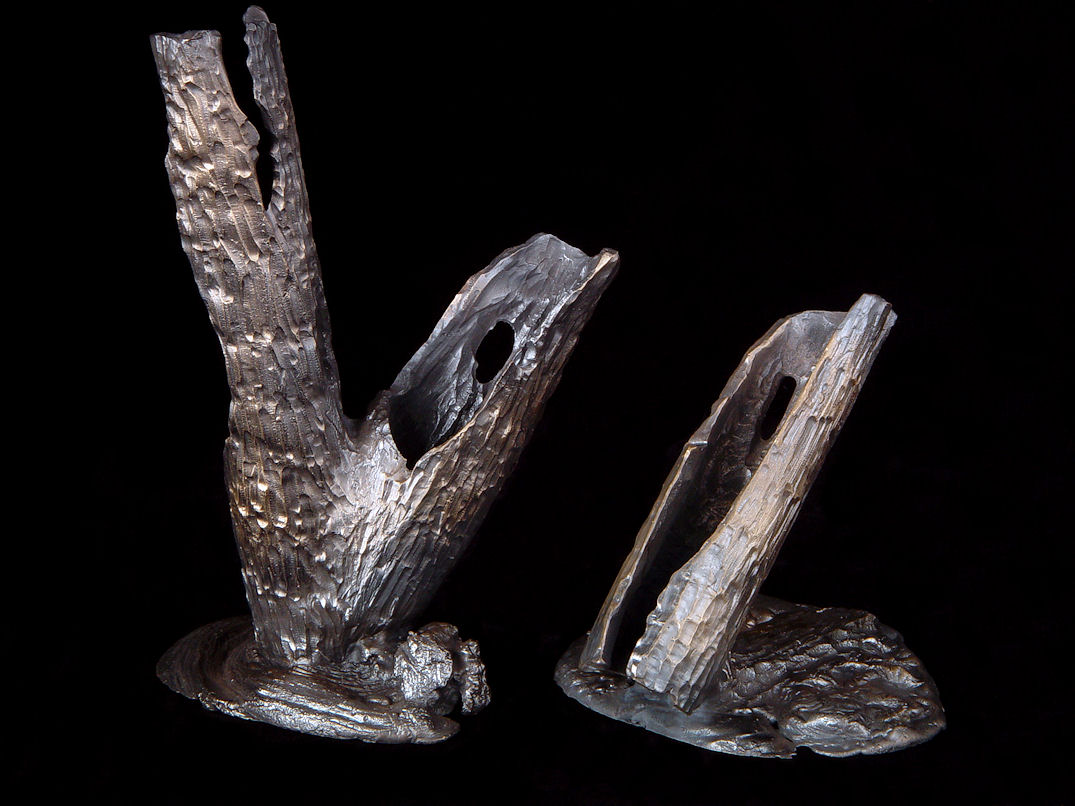
I completed the piece with a custom nameplate made of the same bog oak, and an engraved black lacquered brass plate, attached with brass screws. Morta has been dated at 3430 years Before Present time.
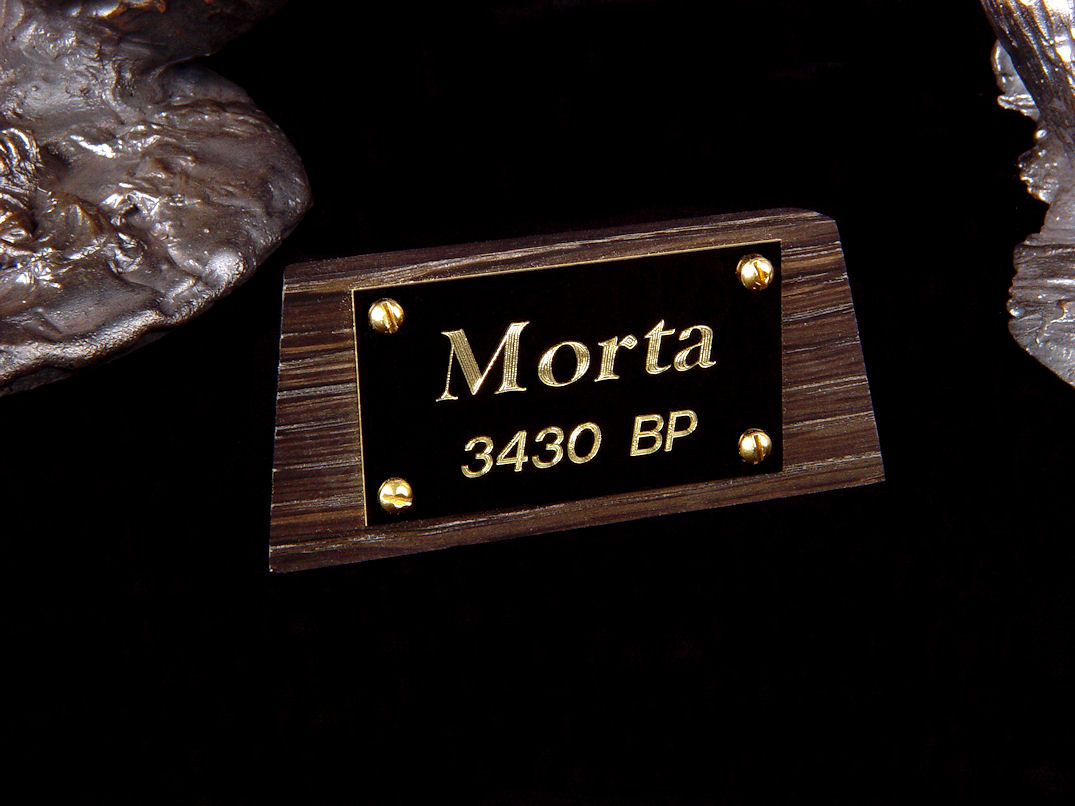
I've taken a lot of photos of this piece, for I can enjoy them long after Morta has found a home. I hope you enjoy them too, and can understand the feeling of infinite time that is reflected in this work of art.
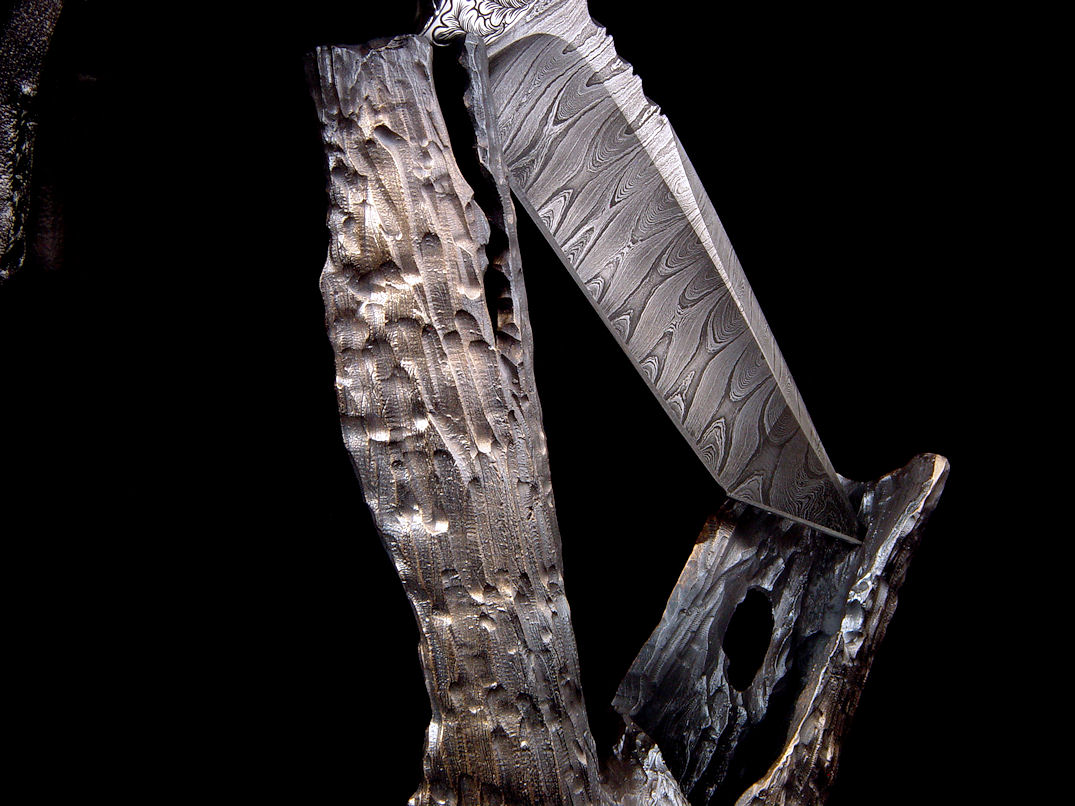
Thanks, G. L.!
